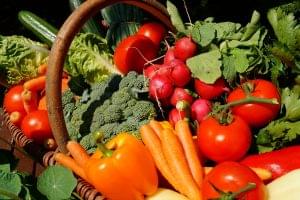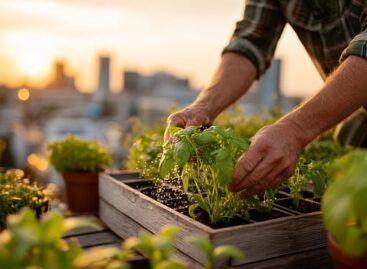Significant political tools help the modernization of the horticulture sector
The current challenges, including the drought and the drastically rising input prices, draw attention to the importance of developments that increase input efficiency and production security – said Sándor Farkas, Parliamentary State Secretary of the Ministry of Agriculture, at the FruitVeB Horticulture Annual Conference on Thursday in Kecskemét.

(Photo: Pixabay)
The state secretary pointed out that in the past two years, agriculture, including the cultivation and processing of vegetables and fruits, has faced several serious challenges. Extremely high input prices make production more expensive, and the consequences of the Russian-Ukrainian conflict and the failed Brussels sanctions must also be taken into account. The war fundamentally determines the situation and prospects of the agriculture and food industry worldwide. Managing the effects and consequences of the extreme price increases on the crop, gas, electricity and fertilizer markets worldwide, which started earlier, but were intensified by the war, is a key and central issue of agricultural policy, he stated.
Sándor Farkas spoke about the fact that there is a way to stay in the competition in the medium and long term in the current extraordinary circumstances
The sector needs to be modernized, but at the same time, investments need to be planned more carefully than before. In the next period, significant political tools will help the realization of agricultural policy goals, including the modernization of horticultural plants. In addition to all this, the fact that the European Commission accepted the Strategic Plan of the Hungarian Common Agricultural Policy, which contains the conditions for the use of more than HUF 5,300 billion, provides a historic opportunity. Sándor Farkas concluded his presentation with the issue of irrigation development, drawing attention to the fact that it is our duty to preserve our waters. The size of the irrigated areas must be increased, the water must be held back. As in agriculture as a whole, it is also true in the field of water management that there is no future without development, he added.
At the event, Anikó Juhász, Deputy Secretary of State responsible for agriculture at the Ministry of Agriculture, spoke about subsidies for the horticulture sector accepted in the KAP Strategic Plan.
He said that the overall goal of the plan is knowledge transfer, innovation and digitalization. In Pillar I of the new KAP, the department set out to achieve economic development and a green future. The II. and the pillar lays down the basic principles of support, including increasing financial soundness, cost-effectiveness, increasing added value, validating the product path approach, and supporting the joint development of producer collaborations. The deputy state secretary stated that according to the government’s expectations, 52% of the available funds will be spent on economic development, which means nearly HUF 1,500 billion. Compared to the period between 2014-2020, this is a fourfold increase in resources. Based on EU expectations, more than a third of the funds, 36%, will be allocated to green measures, and the renewal of the countryside will also continue, more than HUF 285 billion will be allocated for this – Anikó Juhász added.
A.M
Related news
State compensation for the victims of Bászna Gabona Zrt. has been completed
🎧 Hallgasd a cikket: Lejátszás Szünet Folytatás Leállítás Nyelv: Auto…
Read more >In 2025, FruitVeB considered the support and professional coordination of the TÉSZs as its priority task
🎧 Hallgasd a cikket: Lejátszás Szünet Folytatás Leállítás Nyelv: Auto…
Read more >Related news
40 secure jobs, sustainable solutions – new BURGER KING® in Csepel
🎧 Hallgasd a cikket: Lejátszás Szünet Folytatás Leállítás Nyelv: Auto…
Read more >From ham to egg dye – comprehensive Nébih inspection continues until Easter
🎧 Hallgasd a cikket: Lejátszás Szünet Folytatás Leállítás Nyelv: Auto…
Read more >From routine to ritual
🎧 Hallgasd a cikket: Lejátszás Szünet Folytatás Leállítás Nyelv: Auto…
Read more >








